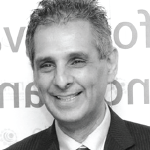
Dr. Walid Hejazi
Associate Professor
University of Toronto, Canada
There are many significant changes that have occured over the past few decades which require businesses and governments to operate differently. These changes include the following big 4:
In this module we will explore how these changes and societal pressures have resulted in significant regulatory changes, and how these changes have material implications on the nature of how businesses must operate.
- The rise of the Internet, the Digital economy, and the associated increases in transparency (both mandated and data leaks such as Wikileaks, the Panama papers, and others.)
- The global push to provide whistleblowers both more protection and more incentive.
- Regulators have access to a larger and more varied array of information than ever before (Big Data and Data Analytics). Therefore, it is increasingly difficult to “hide” in this new digitally connected world. In addition, corporate (and personal) blackmail is on the rise.
- The rise of the 1% - which has received increasing scrutiny in the media and the many “revelations” which have shaped societal expectations and demands on regulators and government in general.
In this module we will explore how these changes and societal pressures have resulted in significant regulatory changes, and how these changes have material implications on the nature of how businesses must operate.
Walid Hejazi is an Associate Professor of Business Economics at the Rotman School of Management where he regularly teaches Canada’s current and future business leaders in the MBA, EMBA, and custom Executive programs.
He has published extensively in many business journals and publications. He has assisted several large retail chains find new ways to understand their market data, providing them with perspectives that have allowed them to optimize their marketing activities, reduce inventory holdings, and develop criteria in location selection.
Walid has also consulted for several branches of the Canadian and foreign governments, on themes related to international competitiveness.
He has published extensively in many business journals and publications. He has assisted several large retail chains find new ways to understand their market data, providing them with perspectives that have allowed them to optimize their marketing activities, reduce inventory holdings, and develop criteria in location selection.
Walid has also consulted for several branches of the Canadian and foreign governments, on themes related to international competitiveness.


